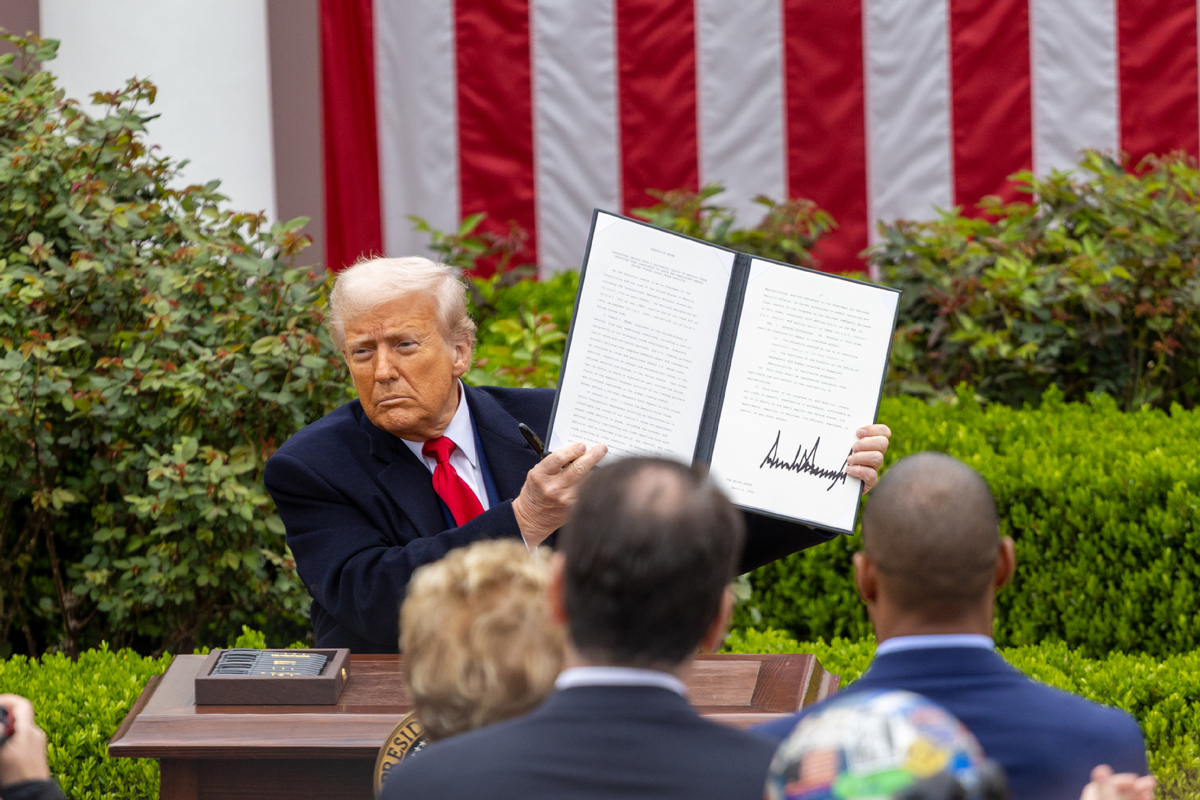US tariffs could trigger severe global recession, economist warns


The United States' government's push for "reciprocal tariffs" could significantly raise the risk of a global economic downturn and may even lead to a situation reminiscent of the Great Depression in the 1930s, warned Guan Tao, global chief economist at investment bank BOCI China.
"The US move to broadly raise tariffs is expected to push US inflation higher in the short term. Over the longer run, as the US tariff policy may trigger a global trade war, global economic growth could slow down," said Guan in an exclusive interview with China Daily the day after the full tariff program was announced.
"US inflation may then retreat sharply following a temporary rebound, with economic growth slowing further. In that scenario, we cannot rule out a repeat of the 1930s Great Depression," added the former head of the Balance of Payments Department at the State Administration of Foreign Exchange.
He drew parallels with the 1930 Smoot-Hawley Tariff Act, which drastically raised US import tariffs. The legislation triggered retaliatory tariffs from major US trading partners, causing global trade to collapse and deepening the Great Depression.
Financial markets are pricing in recession fears, Guan said. Investor anticipation of a US economic slowdown has weakened the dollar as markets foresee potential rate cuts by the US Federal Reserve. Dollar volatility remains high in the short term, Guan said, as the greenback could bounce back if markets shift focus to US inflationary pressures and expect less rate cuts by the Fed.
In the long run, the US's 'reciprocal tariffs' are bound to undermine the dollar's global role. "To supply global dollar liquidity, the US must run trade deficits," Guan said. "If Washington aims to reduce deficits through tariffs, global dollar circulation will tighten, weakening the dollar's international standing."
Guan added that confidence in the dollar is eroding. "Last year, both gold and the dollar rose, but this year, gold continued to climb while the dollar weakened. That suggests some US allies may now be voting with their feet."
On the renminbi, Guan said the yuan has remained generally steady against the dollar, despite weakening following the new tariff announcement.
Future yuan performance will hinge on China's macroeconomic policy responses and its central bank's foreign exchange policy. "So far, markets view the central bank as sending a strong signal of stability," he said.




































